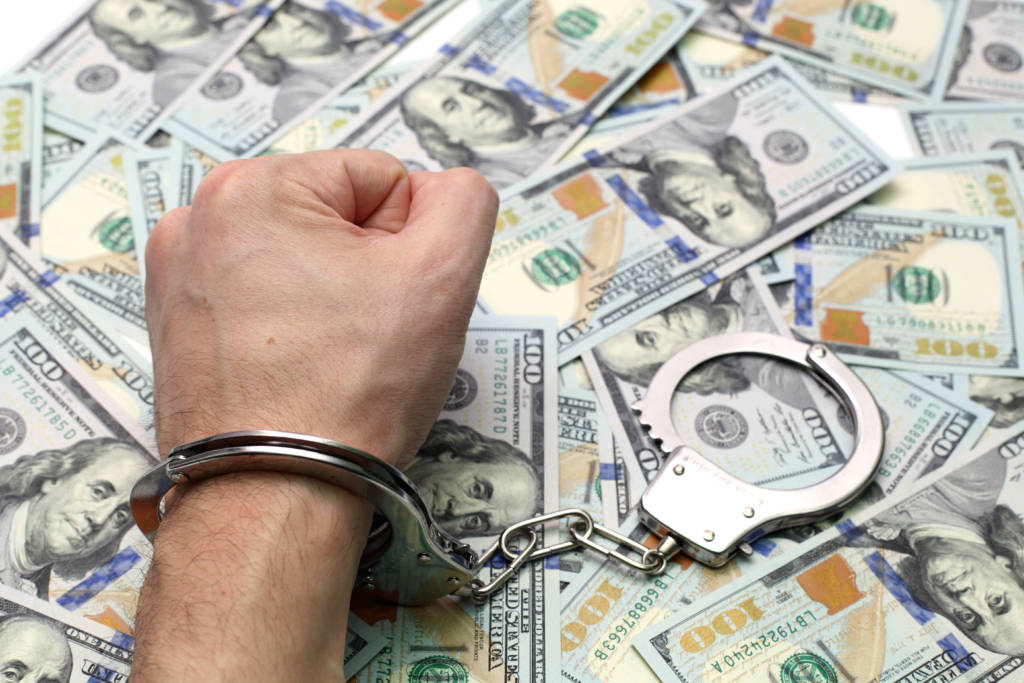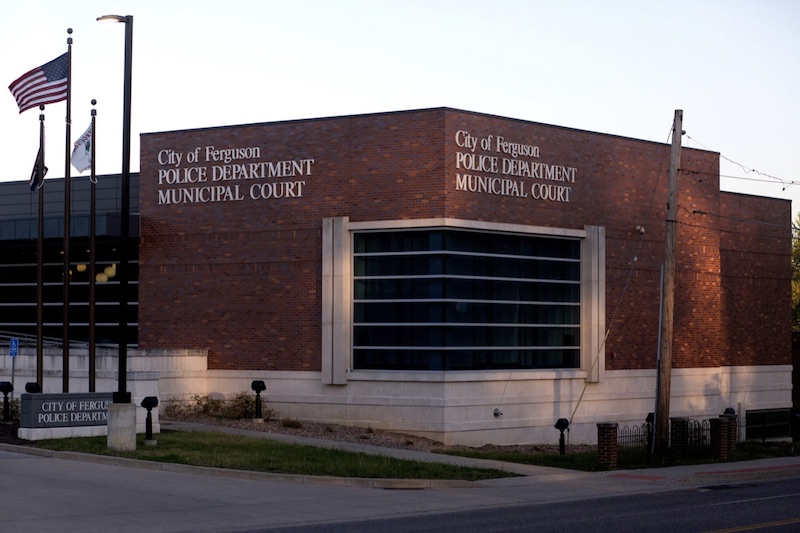Back in 2016, we published, “Money bail: Another foible of the Gaps.”
A few excerpts from that post:
As most, regular readers of this blog know, the income/wealth/power Gaps between the rich and the rest, constitute the single, most important economic problem facing America and the world.
The Gaps exacerbate crime, disease, poor education and housing, infrastructure decline, the ecology, unnecessary war, and unfair justice, among other issues.
Today, we see an example in the following article from the October 1, 2016, Chicago Tribune:
Man held on $5 million bail in U. of I. shooting
An 18-year-old accused of fatally shooting a Mundelein man in the Campustown district at the University of Illinois at Urbana-Champaign early Sunday morning was ordered held in lieu of $5 million bail Friday afternoon.
Robert Patton is accused of shooting into a crowd early Sunday, killing George Korchev, 22, and injuring three others.
What was the purpose of money-bail, and why $5 million?
I’ll answer the 2nd question first: Why $5 million? The clear purpose was to make the bail unaffordable for Patton, so that he will not be loose on the street. The judge clearly does not trust Patton to be free, despite the fact that Patton turned himself in..
That being the case, why offer any bail at all?
If Patton had $5 million (or even the 10%, $500 thousand cash required) should he be free to go? Would he be less a risk to the public if he were rich?
Then, the first question: What is the purpose of bail? According to the American Bar Association: Bail is not a fine. It is not supposed to be used as punishment.
The purpose of bail is simply to ensure that defendants will appear for trial and all pretrial hearings for which they must be present.
Money bail presumes that poorer people, who are less likely to have bail money, must be more likely to flee and are more dangerous to the community.
A rich man, accused of the same crimes as Patton, will make bail and be free.
As a side note, the existence of bail bondsmen — people who lend money to those whom the bondsmen trust to return to court — tacitly assumes they:
- Are better able to evaluate the reliability of the accused than is the judge who sets the bond.
- Are better able to apprehend a fleeing accused than are the police.
(Money bail) exists, as a constant reminder of the Gap between the rich and the rest
In 2019, we published a more thorough analysis of cash bail: “Money Bail: The pro-rich, anti-everyone-else “tax” on the accused”
It included a quote from Sen. Bernie Sanders:
“We lock up more than 2 million people in America, which is more of our own people than any country on Earth.
“Hundreds of thousands of incarcerated people in America have not been convicted of a crime and are solely in jail because they can’t afford their bail. We are criminalizing poverty.”
“Right now, hundreds of thousands of people without a criminal conviction are in jail simply because they could not afford bail. Young people can spend hundreds of days in jail, only to be acquitted — yet the severe damage to their lives cannot be undone.”
Well, good news for justice lovers:
Yahoo News, Mike Bebernes·Editor, January 16, 2020: A new law in New York state that eliminated cash bail for most nonviolent crimes went into effect at the beginning of January.
The change has been celebrated by criminal justice reform advocates but has been met with intense opposition from law enforcement and conservative politicians.
And then, this from the 2/22/2021 Chicago Tribune
Gov. Pritzker signs sweeping criminal justice overhaul
By Dan Petrella Chicago TribuneGov. J.B. Pritzker signed into law on Monday a sweeping criminal justice overhaul package that has been praised by reform advocates and panned by law enforcement groups.
The legislation will abolish cash bail in Illinois beginning in 2023, require police officers statewide to wear body cameras by 2025 , eliminate requirements for signing sworn affidavits when filing complaints against officers, and create a more robust statewide system for tracking police misconduct and decertifying officers who commit wrongdoing.
The measure, passed in the waning hours of the previous General Assembly’s lame-duck session in January, was advanced by the Illinois Legislative Black Caucus as part of its response to the public outcry over the death last year of George Floyd at the hands of Minneapolis police.
The package has the backing of organizations such as the American Civil Liberties Union of Illinois, advocates for domestic violence victims, and even some prosecutors, including Cook County State’s Attorney Kim Foxx.
But police unions and leadership organizations, including the Illinois Association of Chiefs of Police and the Illinois Sheriffs’ Association, have broadly criticized the changes.
Why do the police want cash bail? Because they most often deal with street crime, and street crime is the primary province of the lower-income groups. The police see the revolving door of arrests and releases, especially with regard to gun, drug, domestic abuse, and other crimes of violence.
It is disheartening for a police officer to risk his/her life each day, bringing in violent or potentially violent offenders, just to see them released back into the streets.
Though I empathize with the police on this issue, I believe justice revolves around two questions:
- Is it worse for an innocent person to be locked up for weeks or months, or for a guilty person to be released into the public, where he/she can commit more crimes?
- Is it justice for a rich, guilty person to make bail and be released while a poor guilty person must stay in jail pending trial?
If you believe that “innocent until proven guilty” also means unpunished until proven guilty, as most Americans do, then you are outraged that the cash bail system is a method for punishing innocent people.
And if you believe that the law should treat rich and poor alike, then you are outraged that the cash bail system is a method for punishing poor, innocent people while leaving rich, guilty people unscathed.
The fundamental purpose of the cash bail system is to assure that POOR people show up for trial.
Traci Schlesinger, a sociologist at DePaul University and a board member for the Pretrial Justice Institute wrote about this issue. I urge you to click the link to read the entirety of his excellent article. Here are a few highlights:
“When people aren’t making it to court for their first appointment, most likely they’ll come to their second appointment—and nearly everyone makes it by the third.”
Most failure to appears (FTAs) are the result of forgetfulness or circumstances beyond a defendant’s control. They might need child care, or they are just confused by the court system.
Nor are missed appointments unique to the criminal justice system. Multiple studies report no-show rates of 15 to 30 percent for medical appointments, which is about the same as the criminal court FTA rate in most U.S. jurisdictions. (Meanwhile), some parts of the civil court system, like small claims court and housing court, have absentee rates as high as 95 percent.
“If you miss a doctor’s appointment, you call and reschedule,” Rich-Shea said. “If you miss an appointment with your cable company, you call and reschedule. Why is this so different?”
FTA is also calculated differently in different jurisdictions at different times, and by various agencies. Some agencies calculate the total number of court appointments missed — so that one person who missed 10 court dates would generate 10 FTAs. Other jurisdictions count the number of individuals who failed to appear at any point during the lifetime of a case—so whether a person misses one or 10 court dates, for example, that person would be recorded as one FTA.
Court dates can drag out over months and even years, requiring a person who faces charges to return multiple times. Many courts are only open during weekday office hours, when many people find it most difficult to take time off from work.
In fact, the percentage of FTAs resulting from defendants absconding is exceedingly low, notes Syracuse University College of Law professor Lauryn Gouldin, author of a 2018 law review article on flight risk.
The largest study on court appearances to date, conducted by the Bureau of Justice Statistics between 1990 and 2004 in 40 of the 75 largest U.S. counties, found that more than three-quarters of defendants showed up for all of their court dates.
Of the minority that missed at least one hearing, 94 percent appeared in court within a year after their missed court date.
Even in Illinois, which now has taken the wise step of eliminating all cash bail, judges continue to be able to protect the public. If they believe the accused is a danger to the public, they can deny bail. Or, they can use an ankle monitor. Or they can send the police after the absent accused.
Money bail is a relic of “money justice,” when the rich receive preferential treatment from the courts. The elimination of money bail would be one step in eliminating the heinous tradition of courts favoring the wealthy.
Rodger Malcolm Mitchell
Monetary Sovereignty Twitter: @rodgermitchell Search #monetarysovereignty Facebook: Rodger Malcolm Mitchell …………………………………………………………………………………………………………………………………………………………………………………………………………………………………………………………………………………………..
THE SOLE PURPOSE OF GOVERNMENT IS TO IMPROVE AND PROTECT THE LIVES OF THE PEOPLE.
The most important problems in economics involve:
- Monetary Sovereignty describes money creation and destruction.
- Gap Psychology describes the common desire to distance oneself from those “below” in any socio-economic ranking, and to come nearer those “above.” The socio-economic distance is referred to as “The Gap.”
Wide Gaps negatively affect poverty, health and longevity, education, housing, law and crime, war, leadership, ownership, bigotry, supply and demand, taxation, GDP, international relations, scientific advancement, the environment, human motivation and well-being, and virtually every other issue in economics. Implementation of Monetary Sovereignty and The Ten Steps To Prosperity can grow the economy and narrow the Gaps:
Ten Steps To Prosperity:
- Eliminate FICA
- Federally funded Medicare — parts A, B & D, plus long-term care — for everyone
- Social Security for all or a reverse income tax
- Free education (including post-grad) for everyone
- Salary for attending school
- Eliminate federal taxes on business
- Increase the standard income tax deduction, annually.
- Tax the very rich (the “.1%”) more, with higher progressive tax rates on all forms of income.
- Federal ownership of all banks
- Increase federal spending on the myriad initiatives that benefit America’s 99.9%
The Ten Steps will grow the economy and narrow the income/wealth/power Gap between the rich and the rest.
MONETARY SOVEREIGNTY

